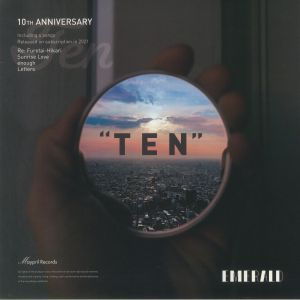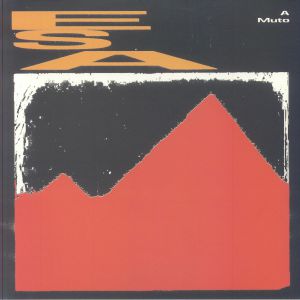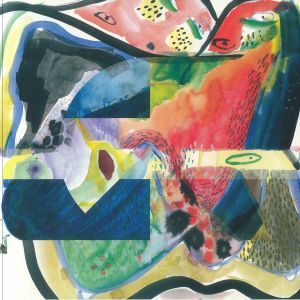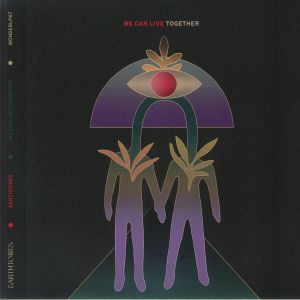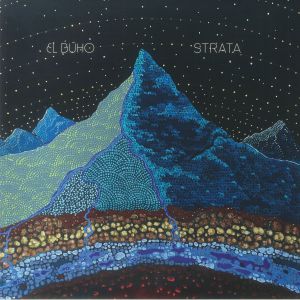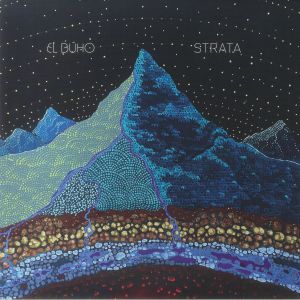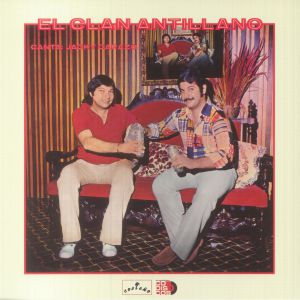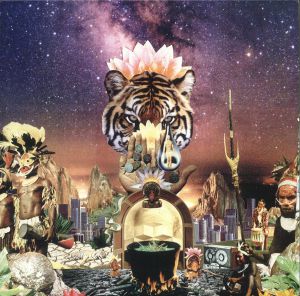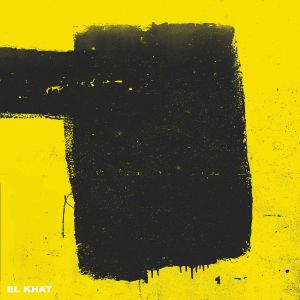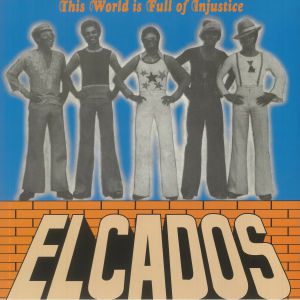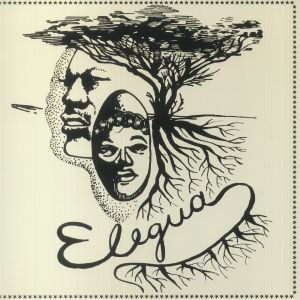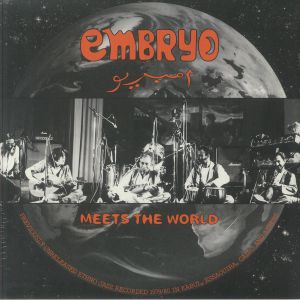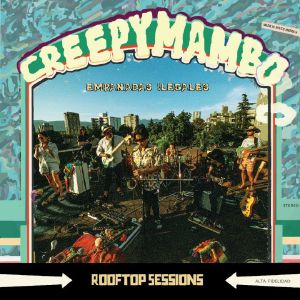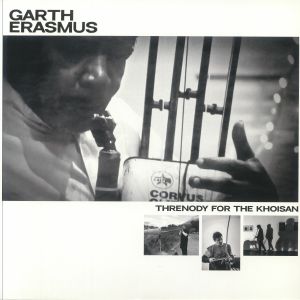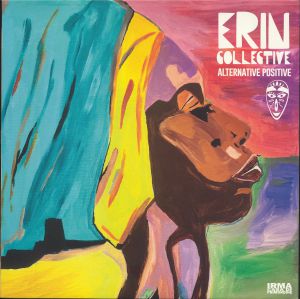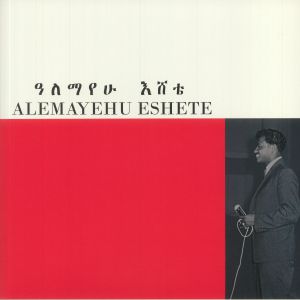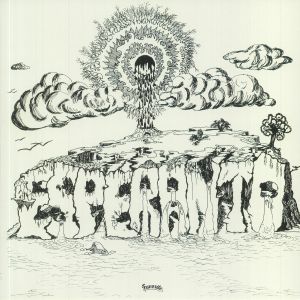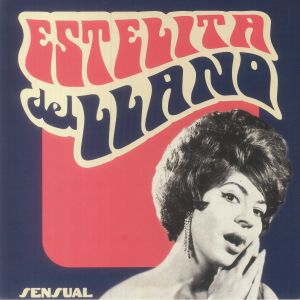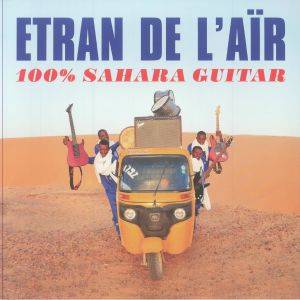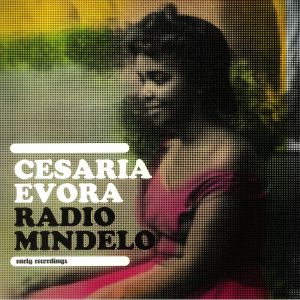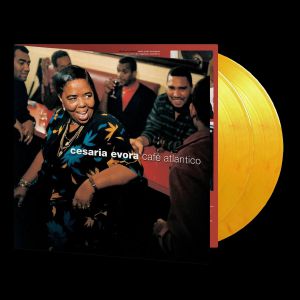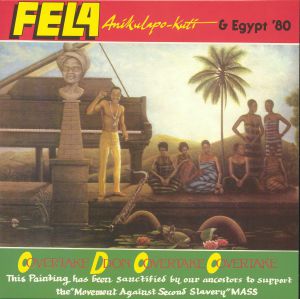Filter
Stock
Type
Label
Featured
Release Title
Price
Tags
Back catalogue: International
Juno's full catalogue of International
Singles
Intérprete: Juno Recommends Broken Beat Nu Jazz
in stock $24.21
Review: Isle of Jura revisits the wonderful 'A Muto' by Esa here with a fresh reissue of it in original form with various remixes. It was originally released in 1986 on the 'Atesa' album and became an instant hit in Cameroon and Africa. The lyrics of tell the story of a woman leaving her husband, frustrated with her isolation as the housekeeper. The song blends Makossa, a brass-heavy style from the French Cameroons, with Ambasse Bey which is a traditional fast-paced dance music from Cameroon. When it was first written, Martin gathered session musicians in Paris and personally programmed the drums and synths using a Linn Drum and Yamaha DX7 to create a unique fusion of modern and traditional Cameroonian sounds.
… Read more in stock $30.85
Álbumes
in stock $30.05
Review: Earthtones land on Wonderwheel here with their first full-length album. The title encapsulates a message of unity and hope for humanity and aims to emphasise our interconnectedness and the universal bond of love. Rooted in Folkloric Futurism, Earthtones merges global folk traditions with modern technology inspired by pioneers like Mr. Fingers and Kevin Saunderson. Analog synthesisers, vintage drum machines, and folk vocals create a truly unique sound that celebrates the past and the future, spirituality, feminism, and peace. Highlights include '??sanyin' featuring Maikel Alberto Salazar and 'La Mujer Serpiente' with Lido Pimienta.
… Read moreIntérprete: Juno Recommends International
in stock $23.15
Intérprete: Juno Recommends International
in stock $26.07
Review: El Buho's fifth studio album may be his most personal yet. Strata draws from Robin's attempts to grapple with the tension of experiencing happiness, joy and gratitude in our daily lives with loved ones or through sharing music, while the world falls apart around us. This dynamic of trying to live in the moment and enjoy the privileged life we have, yet in the back of your mind there is an overwhelming sense of dread that the world will never be the same and, as climate change really starts to hit home, there are incredibly difficult times ahead. It is about our attempts to find a place of peace, balance and fulfillment between these powerful strata above and below us.
… Read moreIntérprete: Juno Recommends International
in stock $28.46
in stock $30.05
Intérprete: AfroBase (Radio Chart), Juno Recommends International
in stock $39.90
in stock $39.11
Intérprete: Juno Recommends International
in stock $22.61
Review: Viaje Sideral is a cosmic journey led by El Leon Pardo and his ancestral instrument, the kuisi, which is a pre-Colombian flute that traditionally symbolises resistance and survival. This second album from Pardo explores humanity's connection with the stars by blending Caribbean percussion, analogue synths, deep bass, electric guitars and the distinctive sounds of kuisis and trumpets. The tunes channel the tropical psychedelia of the 70s and 80s while incorporating ambient and electronic influences from artists like Terry Riley and Kraftwerk. Viaje Sideral is a great mix of dreamlike astral sounds with tropical rhythms that mean both the earthly and the cosmic are explored.
… Read more in stock $23.94
Music From The East (remastered) (LP + insert)
Cat: WWSLP 95. Rel: 30 Jan 25
Review: Ammar El Sherei's 1976 instrumental gem is one of those cult albums that record collectors love to have in their arsenal to, well, show off with. It finds the legendary Egyptian composer reinterpreting seven classics by Mohamed Abdel Wahab and in doing so he waves traditional Arabic melodies into funky arrangements and electric keyboard experimentation. This hypnotic fusion highlights El Sherei's unique perspective and knack for bridging heritage and innovation. Curated and annotated by Arabic music expert Mario Choueiry from Paris' Institut du Monde Arabe, this reissue features newly remastered audio and original Soutelphan artwork so is a no-brainer for fans of vintage yet adventurous Arabic grooves.
… Read more in stock $33.51
Review: Ammar El Sherei's intoxicating instrumental album Oriental Music was written in 1976 and has remained a cult classic for all the deep diggers, world music lovers and curio obsessives. For this record, the iconic Egyptian artist, composer and producer actually served up his own take on six classic compositions by another Egyptian legend, Mohamed Abdel Wahab. The results are utterly hypnotic and majestic melodic affairs with organic drums and percussion and North African melodies that worm their way deep into your brain and transport you to the hustle and bustle of a dusty open air market or street side coffee spot.
… Read more in stock $32.45
in stock $23.68
Cat: AF 1002. Rel: 03 May 22
in stock $25.27
in stock $29.26
Review: Embryo, the music collective from Germany, rekindle the flaming title of "one of the most important German jazz-rock bands from the 1970s" with a brand new mini-LP on Sonarama. A neat collection of unreleased ethno-jazz from 1979-80, its rediscovery in the archives captures the band's formerly-only-hazily documented journey across Afghanistan, North Africa and the Near/Middle East, documenting the German supertroupe's late-career collabs with regional outfits, such as the Kabul Radio Orchestra and players from Eritrea, Syria, Morocco and Iraq. Blending trad melodies with free-flowing improv, this touring jazz explosion flaunts the many scalene modes native to such places; their provenance is esoteric and difficult to track down.
… Read more in stock $23.15
in stock $28.99
in stock $26.59
in stock $24.74
in stock $34.04
in stock $20.15
Review: Eroya is a Lagos-based collective bridging generations of musicians who trace Nigerian music from the 1940s to today's Naija grooves. Their sound weaves so called styles such as palm-wine, agidigbo, juju, highlife, Afro-funk and Afrobeat traditions. Key members include Sina Ayinde Bakare, son of juju pioneer Ayinde Bakare, juju legend Fatai Rolling Dollar, Afro-funk saxophonist Prince Eji Oyewole and Afrobeat pianist Duro Ikujenyo of Fela Kuti's Egypt 80. Highlights on this album include Alaba Pedro's soulful 'Ekaete', Tejebaby's hypnotic 'Africa', and Oyewole's flute-led 'Experience'. With its bubbling jazz textures and deep rhythmic energy, Eroya is a perfect tribute to Nigeria's enduring musical contributions.
… Read moreIntérprete: AfroBase (Radio Chart)
in stock $28.99
Ethiopian Urban Modern Music Vol 2 (180 gram vinyl LP)
Cat: HS 095VL. Rel: 17 Aug 21
Intérprete: Sol Power All-Stars, Juno Recommends International
in stock $20.21
Review: Esperanto is widely heralded as a Venezuelan jazz-Ffsion masterpiece. It was first released in 1980 and is a real collector's item that is hard to find an expensive. French label Favourite now presents a first ever reissue of the eponymous LP that was recorded in Caracas by a number of talented musicians. It has strong Latin and funk overtones. Squelchy synth sounds and is a must-have for anyone interested in this fine fusion sound. The band started off playing jam sessions that grew ever more refined to the point that they eventually lay down this enduring masterclass.
… Read more in stock $24.74
in stock $35.91
in stock $34.32
in stock $32.45
Review: Eve's Canto Aberto is one of the many classic albums from the MPB canon. It's packed with impeccable acoustic guitar playing and the beautiful voice of the eponymous artist. He fled Brazil in 1974 and settled in France which explains why this one came on the Free Lance label in 1979. It is his one and only album from that time before he moved to the USA and was recorded with Parisian artists plus fellow expatriate Manduka. Packed with gorgeous songs from front to back, this reissue has been reissued and remastered from the original mastertapes.
… Read moreIntérprete: Charles Maurice, RUSTAM OSPANOFF.
in stock $23.15
Review: On Cartao Postal, Evinha offers a deep, evocative collection of tracks that manage to both mesmerize and transport. The Sao Paulo-born singer weaves in elements of MPB, samba, and bossa nova with a natural ease, the rhythms flowing like a gentle tide. Her voice feels at home in every corner of the record, whether exploring soulful melodies or swaying in more jazzy moments. The understated orchestration brings warmth without overwhelming, keeping Evinha's storytelling centre stage. This is a release where every note feels purposeful, quietly drawing you into its layered beauty.
… Read more in stock $30.85
Radio Mindelo: Early Recordings (Record Store Day RSD 2023) (limited numbered 180 gram audiophile purple marbled vinyl 2xLP + booklet)
Cat: MOVLP 3307C. Rel: 29 Apr 23
in stock $38.84
Sao Vicente Di Longe (reissue) (limited numbered 180 gram audiophile orange & black marbled vinyl 2xLP + 4-page booklet)
Cat: MOVLP 3308C. Rel: 23 May 23
in stock $29.26
Cafe Atlantico (25th Anniversary Edition) (limited numbered gatefold 180 gram audiophile gold vinyl 2xLP)
Cat: MOVLP 1003G. Rel: 27 Nov 24
Review: A native of the island nation of Cape Verde, Cesaria Evora was known as the country's foremost practitioner of the morna, a combination of West African percussion with Portuguese fados, Brazilian modinhas, and British sea shanties. Here her much-acclaimed debut album from 1999 is heard reissued by Music On Vinyl, highlighting a pinnacle point in her career. The 90s were a strong time for Evora; it saw to a string of original records after a pluming singing career in the decade prior. Evora here ventured further into Latin American infused soundscapes, venturing further outwards from her earlier Portuguese explorations.
… Read more in stock $38.03
Vudu (reissue) (180 gram vinyl LP)
Cat: MRSSS 554. Rel: 28 Dec 17
in stock $24.21
Overtake Don Overtake Overtake (reissue) (translucent green vinyl LP)
Cat: KFR 20443. Rel: 22 Feb 24
Intérprete: Juno Recommends International
in stock $21.81
Meridian Brothers & El Grupo Renacimiento (reissue) (translucent green vinyl LP + insert)
Cat: ANSW 4001LPG. Rel: 11 Jul 24
Review: El Grupo Renacimiento, the brainchild of Colombia's Meridian Brothers, offers a fantastical journey into a surreal world where salsa meets Kafkaesque transformations. Led by the versatile musician Eblis Alvarez, Meridian Brothers have long blurred the lines between avant-garde experimentation and traditional Latin rhythms, including Colombia's cumbia. With El Grupo Renacimiento, Alvarez and his collaborators craft a whimsical playlist that touches on themes ranging from anti-police protest to addiction and broken love, each track infused with a surreal twist and paying homage to salsa's diverse subgenres. Songs like 'Triste Son' parody Cuban son with a cha-cha beat, while 'Poema del Salsero Resentido' forewarns of a rhythmic apocalypse. 'Metamorfosis' explores the theme of transhumanism with percussive intensity. Despite the album's tongue-in-cheek approach reminiscent of Latin Spinal Tap, the music remains tightly woven and playful. Released on the revived Ansonia label, marking its first new release in three decades, El Grupo Renacimiento is a delightful fusion of creativity and nostalgia, pushing musical boundaries while paying homage to salsa's rich heritage.
… Read moreIntérprete: Juno Recommends International
in stock $23.67

 USD
USD






